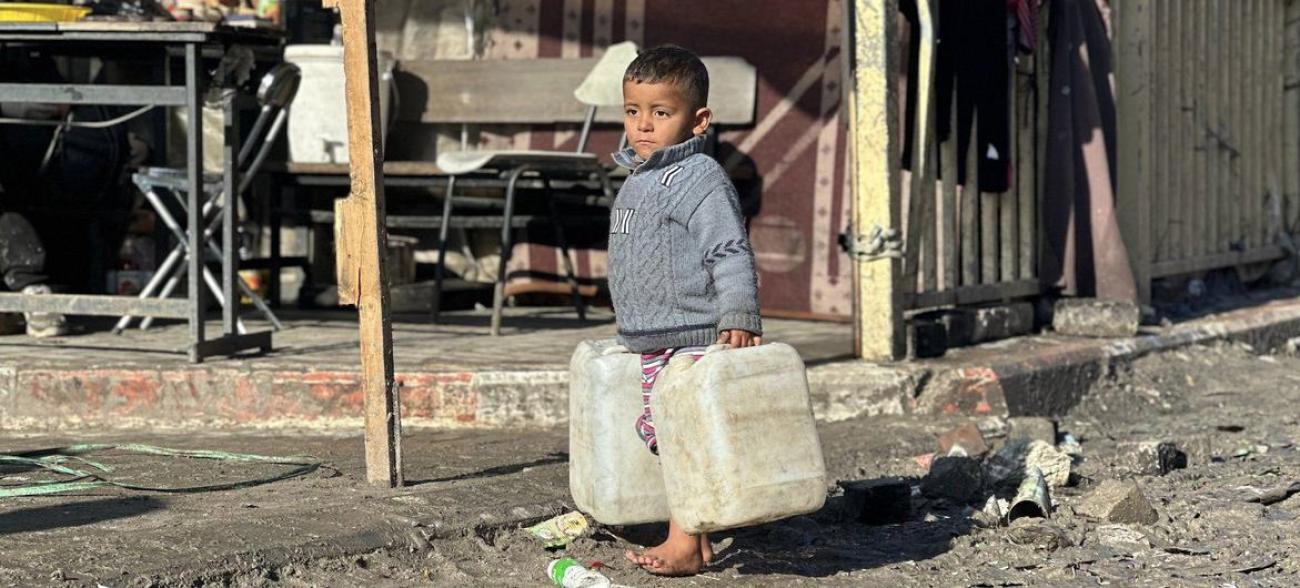Residential areas are under attack, hospitals have been ordered to evacuate, and electricity remains cut off, UN Spokesperson Stéphane Dujarric said on Monday, citing reports from the Office for the Coordination of Humanitarian Affairs (OCHA).
“As heavy bombing and ground operations in the north continue, medical facilities and other essential services there are at risk of shutting down. Bakeries are already closing, with workers displaced along with their families,” he told journalists at the regular briefing in New York.
“No fuel or commercial goods are allowed in, and aid workers are only able to bring in a trickle of humanitarian aid through Israeli checkpoints in parts of the north.”
Southern Gaza completely overwhelmed
People fleeing northern Gaza have limited options, as southern Gaza is already overcrowded, polluted, and totally lacking in basic services.
“Southern Gaza is completely overwhelmed and cannot accommodate more people,” Mr. Dujarric said.
As of Monday morning, more than 50,000 Palestinians, including women and children, have been displaced within northern Gaza, with some patients evacuating hospitals in the affected areas.
“Many others in the north, especially in the Jabalya camp, are trapped in their homes, unable to leave safely. So far, few families have crossed Wadi Gaza heading South,” he added.
Mr. Dujarric noted that UN agencies, alongside humanitarian partners, are closely monitoring the movement of people and providing displaced families with essential assistance where possible.
However, OCHA emphasizes that evacuation orders do nothing for civilians if they have no safe place to go or lack access to shelter, food, medicine, or water, he said.
Aid workers are also forced to rely on a single, unsafe road allocated by Israeli authorities for bringing in supplies from the Kerem Shalom crossing, while facing hostilities and violent, armed looting, fuelled by the collapse of public order and safety, he added.
Displacement continues
He also noted that displacement orders continue, particularly from the south of Lebanon and the southern suburbs of Beirut, the capital.
According to the UN International Organization for Migration, more than 540,000 people have been displaced since 8 October last year.
In response, UN agencies and partners continue to assist people in need, having delivered over 500,000 hot meals since 23 September, as well as other critical supplies.
“We and our partners, in close collaboration with the Government of Lebanon, continue to lead and coordinate relief efforts for displaced and affected people,” Mr. Dujarric said.
He also highlighted the Flash Appeal launched last week, aiming to provide one million people with lifesaving supplies and protection. However, as of Monday, the appeal is only 12 per cent funded, having received just $53 million.
“We urge donors to give. Give in cash and give quickly.”


